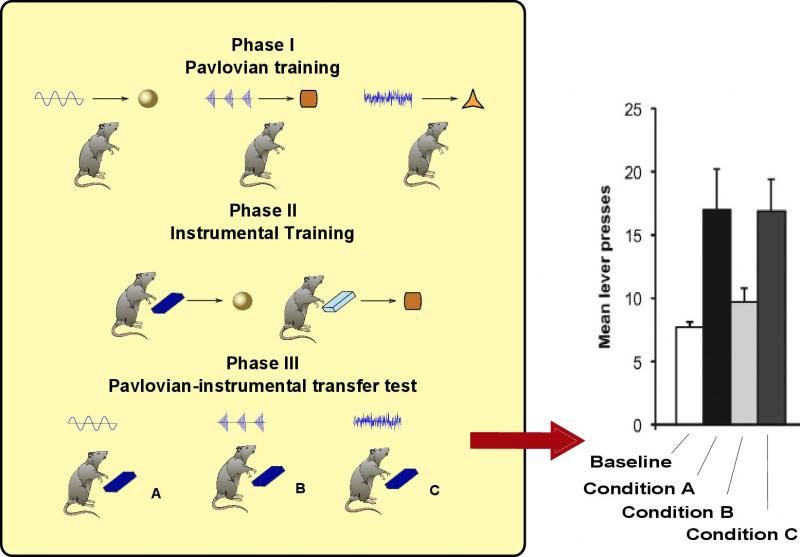Synopsis
Authors: Emilio Cartoni, Gianluca Baldassarre
Topic and its relevance. The study of intrumental and habitual behaviour has led us to investigate their interactions by addressing a specific psychobiology experimental paradigm called `Pavlovian Instrumental Transfer' (PIT). This issue is very important as Pavlovian and Instrumental processes are fundamental learning processes underlying adaptive behaviour.
 Questions and goals. What is the adaptive function of the interactions between Pavlovian and Instrumental processes? How do the brain systems underlying Pavlovian and instrumental processes interact at the neural level? What is the role of plasticity in these processes?
Questions and goals. What is the adaptive function of the interactions between Pavlovian and Instrumental processes? How do the brain systems underlying Pavlovian and instrumental processes interact at the neural level? What is the role of plasticity in these processes?
Methods. We are developing bio-constrained computational models on these issues. Moreover, we are carrying out empirical experiments with humans on them.
Results. We have proposed a model-based theory that links the various forms of PIT to three different aspects of action: the executability (relevance) of actions in a given context; the value of action outcomes; the probability that those outcomes actually follow action execution.
Conclusions. Computational models of PIT have a high potential to integrate concepts and empirical results on Pavlovian and Instrumental processes.

